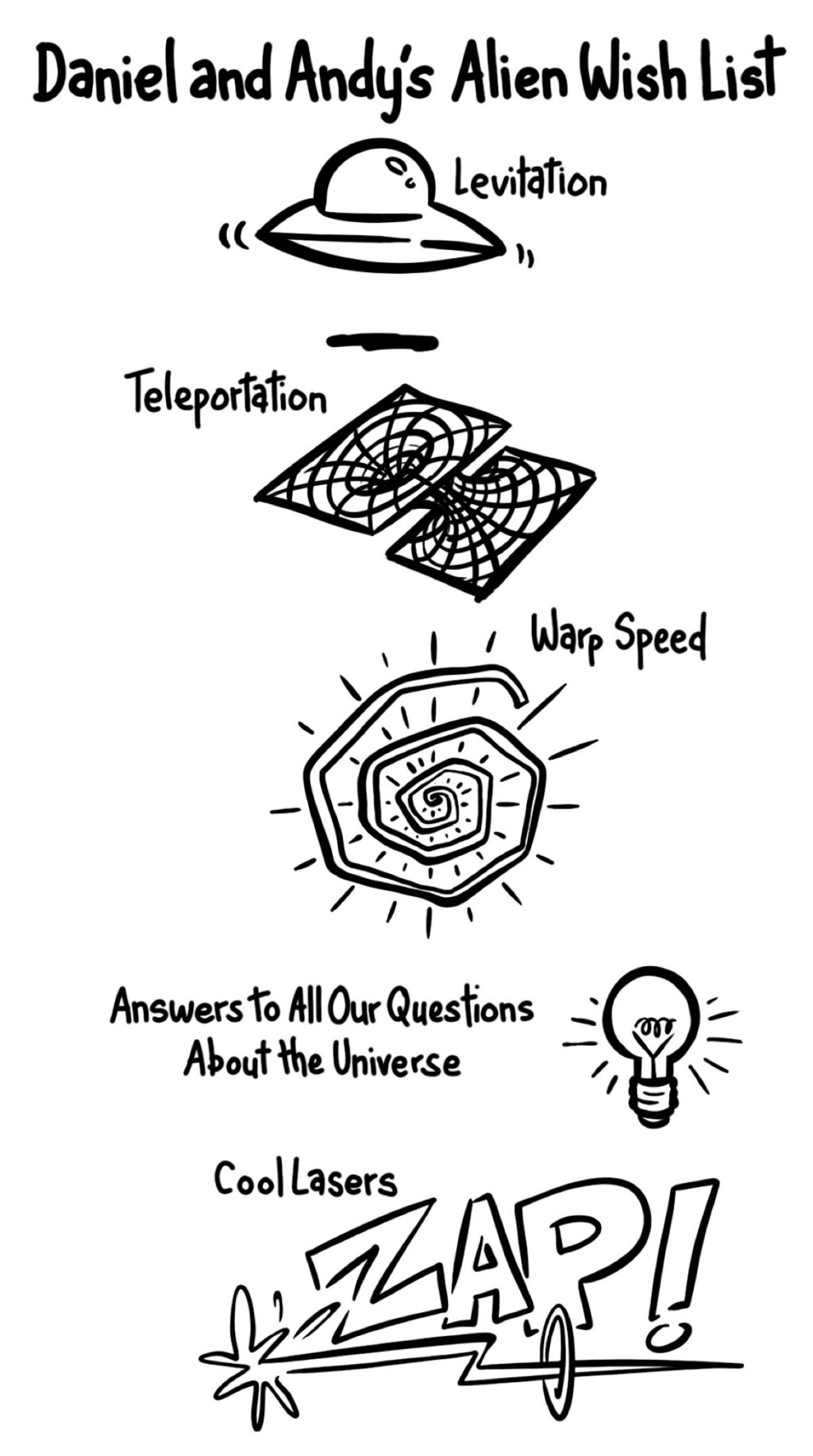Ars Technica: The Voyager Golden Record is perhaps the best known example of humans attempting to communicate with an alien species, pioneered by the late Carl Sagan. But what are the chances that, despite our best efforts, any alien will ever be able to understand our “message in a bottle”?
Daniel Whiteson: I did an informal experiment where I printed a picture of pioneer plaque and showed it to a group of graduate students who were so young that they had not seen it before. This is Sagan’s audience: biological humans, similar brains, similar cultures, physics graduate students—none of whom had any idea what any of this meant. NASA gave them two weeks to come up with that design. I don’t know that I could have done any better. It is easy to criticize.
Those guys, they were doing their best. They were trying to move away from our culture. They did not use English, did not even use mathematical symbols. They understood that these things were arbitrary, and they were moving toward something they hoped would be universal. But ultimately, nothing can be universal because language is always symbolic, and the choice of those symbols is arbitrary and cultural. It is impossible to choose a symbol that can be interpreted in only one way.
Fundamentally, this book is trying to attack our assumptions. It is very inspiring to me that the history of physics is full of times when we have had to abandon a belief that we held firmly until we were shown otherwise with sufficient data. So we have to be really open-minded about whether these assumptions are true, whether they need to be for the sake of science, for the sake of technology, or whether there is a single explanation for reality. We may be very surprised by what we discover.


Ars Technica: It is often believed that mathematics and physics are the closest we have to a universal language. You challenge that assumption, examining questions like “What does it mean to ‘count’?”
Daniel Whiteson: At initial glance, you might think that of course math is necessary, and of course numbers are universal. But then you get deeper into it and you start to realize that there are gray areas here. Many of the assumptions underpinning our interpretation of what we learn about physics are like this. I had this experience that’s probably very common among physics undergraduates in quantum mechanics, learning about calculations where you see nine decimal places in theory and nine decimal places in experiment, and you say, “Wow, this isn’t just some calculation tool. This is how the universe decides what happens to a particle.”
